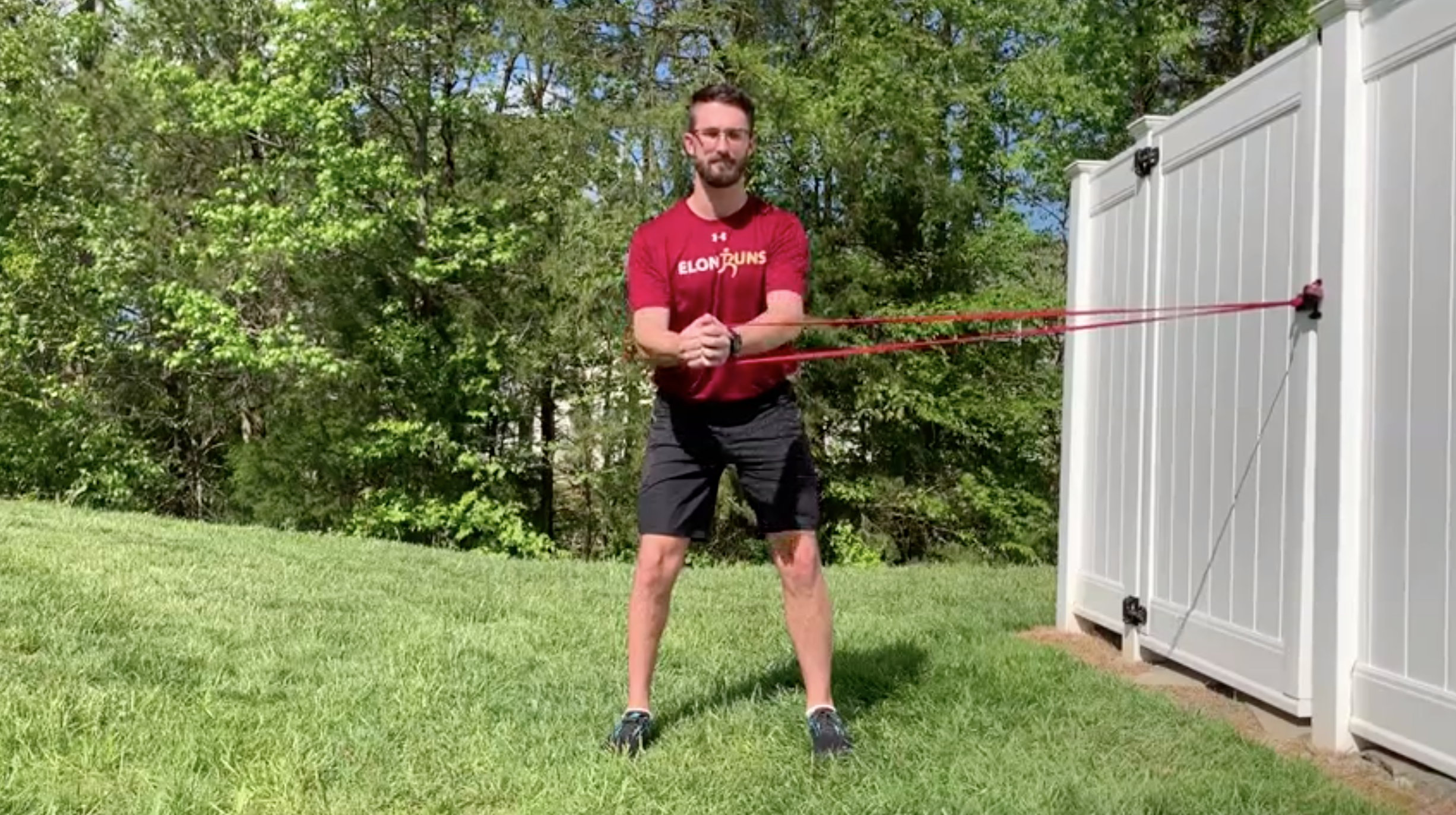Third-year Elon DPT candidates are working to create a database of strength and conditioning exercises specifically for athletes with physical limitations.
For adaptive athletes with physical disabilities, receiving prosthesis or returning to sport after a life-altering injury is just the beginning of a long journey. It’s a journey that takes strength and conditioning, and third-year students in Elon’s Doctor of Physical Therapy program are doing what they can to help athletes through that process.
Assistant Professor of Physical Therapy Education Shefali Christopher’s DPT 804: Advanced Musculoskeletal Selective course offers students a deep dive into a variety of topics, including advanced manual therapy, running gait and advanced work with unique populations. This year the special populations portion of the course paired students with adaptive athletes to create personalized exercise progressions meant to help them adapt to the equipment they need to compete in their chosen sport.
“I think it’s really meaningful work, and I like to give students ways and examples of being able to do things such as these out in the community for their own patients,” Christopher said. “So I’m trying to give them skillsets that they can reflect on and they can build from.”
As an independent study for DPT 804, third-year student Zach Collins worked closely with an athlete who is overcoming an amputation near his elbow as he tries to return to standup paddle boarding. Collins’ goal was to create an exercise progression to improve the athlete’s upper body strength and allow him to safely use both arms while paddle boarding. The experience was especially meaningful for Collins, who hopes to one day work specifically with adaptive athletes as a professional physical therapist.
“It’s really helpful to work with somebody that’s willing to work with you and go by trial and error,” Collins said. “So having some of these athletes that were really willing to put themselves out there and learn with us was an amazing experience.”
Collins and his classmates consulted virtually with adaptive athletes from the Challenged Athletes Foundation of Idaho to create a database of exercise videos that help adaptive athletes through the strength and conditioning process of their return to sports.

The Challenged Athletes Foundation, based in San Diego, California, serves adaptive athletes around the world by awarding grants for equipment, coaching and training. The organization helps these athletes overcome the financial barriers of sports, but CAF Idaho Regional Director Jennifer Skeesick saw a need for athletes to receive training to avoid overuse injuries, burnout or any other factors that may discourage them from continuing to pursue their chosen sport.
That’s why Skeesick worked with Christopher, a friend and former PT school classmate, to connect Elon students with CAF Idaho adaptive athletes who were excited to help create the video database. With CAF’s international reach in mind, the group hopes these videos can help special populations of athletes everywhere.
“Elon is going to go on the map for being an excellent strength and conditioning resource for challenged athletes,” Skeesick said. “The videos created by the students in this course are going to serve our athletes across the world.”

The purpose of Christopher’s DPT 804 course is to expose students to experiences like these that aren’t often offered in PT programs. In this case, it allowed students to work with adaptive athletes to learn how to create progression exercises, prepare extensively for clinicals and – most importantly – learn to help all patients, no matter their background.
“That’s the calling of a physical therapist – to help people move,” Christopher said. “And that means people of all abilities, so I think it’s a good value to teach students early on to think through different impairments of different patients that they may work with so that the next time someone walks into the clinic, they don’t say ‘sorry, we don’t treat this kind of patient,’ but they can embrace them and use some of the thinking they’ve used in this class to adapt them to all different kinds of patients.”



